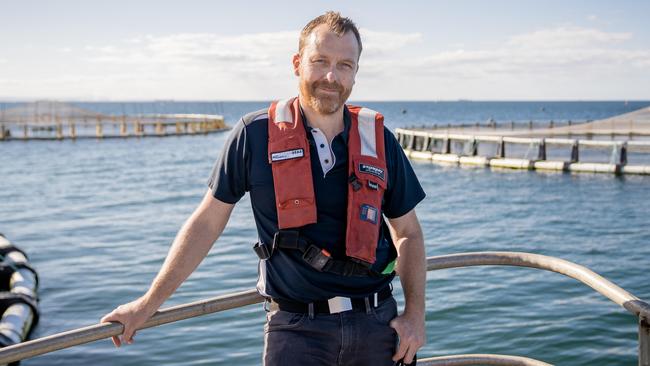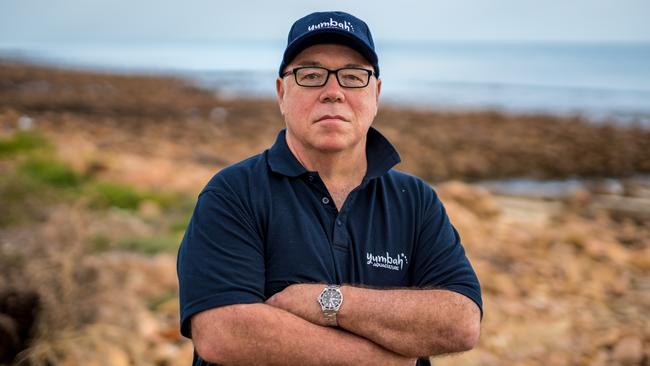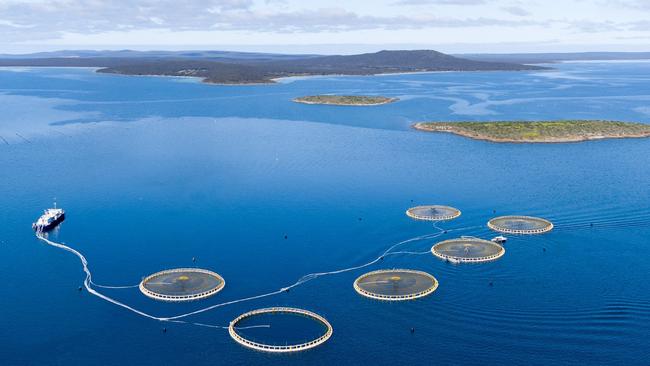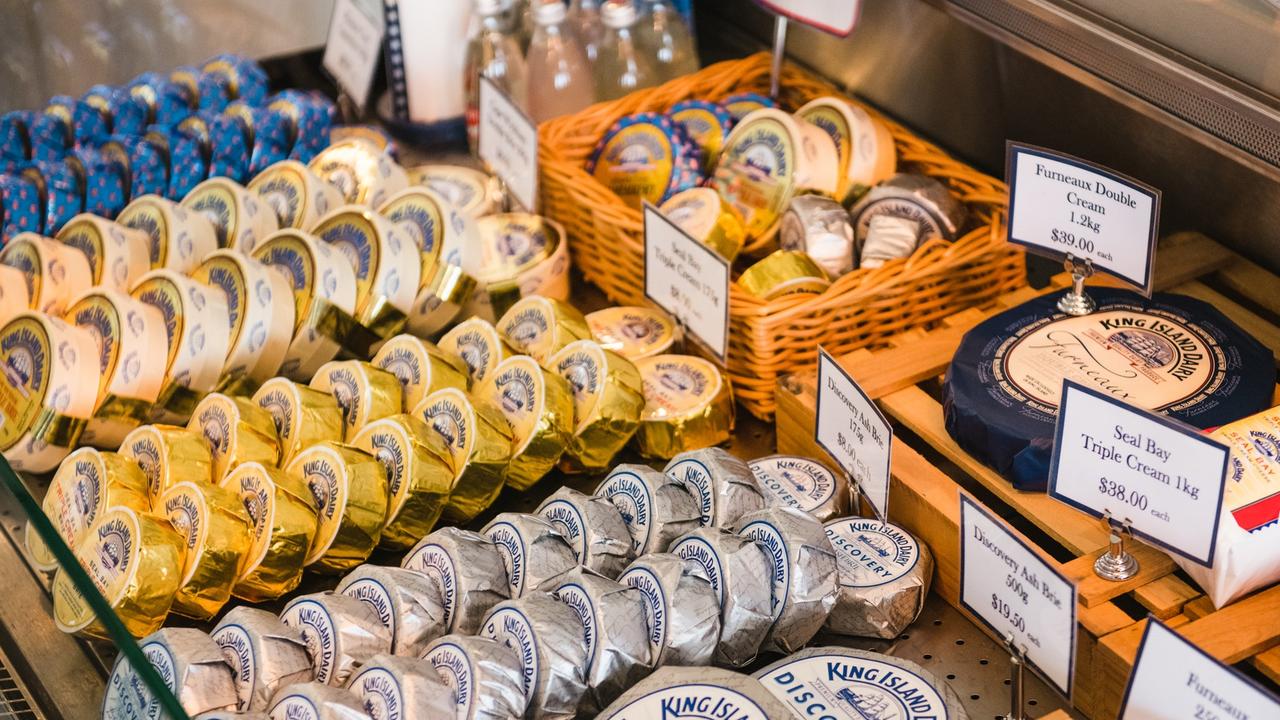Clean Seas Seafood joins councils in opposing Billy Lights desal plans
Clean Seas Seafood has joined the chorus of protest against a proposed desalination plant at Billy Lights Point near Port Lincoln, saying the plant could be a “white elephant”.

Clean Seas Seafood has joined the chorus of protest against a proposed desalination plant at Billy Lights Point near Port Lincoln, saying the site is inappropriate, and the plant could be a “white elephant” anyway.
The need for a new desalination plant on the lower Eyre Peninsula was identified by SA Water as far back as 2008, with several sites including Point Boston and Sleaford West considered before SA Water settled on Billy Lights Point as the preferred option.
SA Water had hoped to start construction of the plant in mid-2024, with water to be delivered by the end of 2025.
But the project has met with strong community opposition, with the Barngarla Determination Aboriginal Corporation (BDAC) threatening legal action, the Port Lincoln and Tumby Bay councils voicing their opposition, and now ASX-listed kingfish farming company Clean Seas Seafood joining the fray.
Clean Seas, which is 19.8 per cent owned by billionaire Pro Medicus co-founder Anthony Hall, who is also a major investor in mussel, oyster and abalone farmer Yumbah Aquaculture, has made a submission to the Select Committee on Water Supply Needs of Eyre Peninsula, saying that if the desal plant were to be built at Billy Lights Point, the design should be changed to ensure that the intake and outlet pipes were outside specific zones in the bay.
But ideally the company would prefer it be built somewhere else entirely.
“The decision to build the desalination plant at Billy Lights Point, with intake and outflow pipes inside Boston Bay ignores the recommendations of the Site Selection Committee which weighed up environmental, social, technical, property and financial criteria, including the SARDI (South Australian Research and Development Institute) and Marine Science Review Panel reports.

“The concerns raised and agreed in the science forum on 21st September, 2023 have not been followed up on, where it was agreed that near and mid field monitoring was incomplete. “Instead, SA Water have pressed ahead with building the Desalination Plant at the site least favoured by the Port Lincoln community and the aquaculture industry, and in the location that carries the highest risk to the environment and industry.’’
Clean Seas says there has been incomplete monitoring of the proposed site and the project would put at risk the local aquaculture industry.
It also, “ignores the scientific assessment that reflects the cumulative stress that Boston Bay is already under. It has been approved with incomplete near and mid field monitoring’’.
“Finally, any desalination plant in the Port Lincoln area risks being a ‘white elephant’ once the Northern Water site at Cape Hardy is constructed, which has the potential to provide water security to the Eyre Peninsula without impacting existing industries and the environment,’’ Clean Seas says.
Clean Seas has suggested that either the current project be redesigned to extend the intake and outlet pipes, that it be built at Sleaford West “as per site selection committee recommendation’’ or that a temporary water supply solution be found until the Northern Water project comes online.
That project envisages a $5bn desal project situated at Cape Hardy, with a 260 megalitre plant and 600km of pipeline supplying water to major resources projects in the state’s north.
A final investment decision on the Northern Water project, the cost of which would be recouped by long-term water supply contracts with BHP and other industrial users, is not expected until the first half of 2026 however, following the production of a major Environmental Impact Statement.

SA Water’s submission to the Select Committee says “the science is clear” that the Uley South Basin is under stress and current extraction rates are higher than sustainable levels.
“A seawater desalination plant is widely accepted as a climate-independent solution for the region,’’ SA Water says.
“Over 20 sites have been considered and the proposed desalination plant and Billy Lights Point site is the only viable option that can be built before expected changes are made to the Water Allocation Plan (currently being reviewed by the Eyre Peninsula Landscape Board) and the introduction of severe water restrictions for the community, industry and primary production.’’
SA Water said there were “significant challenges” associated with building a desal plant in Sleaford Bay, with Billy Lights Point, which is “a former industrial site” a preferable site.
“Billy Lights Point is our preferred location because it offers the best overall value of any site assessed and is the only solution that can be delivered within the required time frames to ensure long-term water security for the region, with an appropriate balance of social, economic, water security and costs,’’ SA Water says.
In a statement to The Advertiser, SA Water said building a plant at Sleaford West would cost at least $200m more than Billy Lights Point, “with pathways for additional funding not guaranteed, with the application process likely to add at least another 12 months to the process, before receiving any certainty to be able to commence detailed design’’.
“Billy Lights Point therefore remained as SA Water and the State Government’s preferred location for a desalination plant.
“Expert and peer-reviewed environmental studies confirm that with the right design, there would be minimal impact on the marine environment from a desalination plant built at this location.
“Our complete near and mid-field modelling along with final geotechnical studies will help inform the exact location of the intake and outfall pipes (where the plant will draw in seawater and disperse saline concentrate), with this information to be peer-reviewed by the independent Marine Science Review Panel.’’
Yumbah Aquaculture said in its submission to the select committee it also wanted more scientific studies to be carried out, and that a desalination plant, “at the very heart of Port Lincoln, presents enormous risk to all who share the value its waters bring’’.
“Regional Development Australia Eyre Peninsula notes the region produces all of South
Australia’s Southern Bluefin Tuna, all of its marine finfish (kingfish), all of its mussels, 97
per cent of its oysters and more than 60 per cent of its abalone.
“More than 80 per cent of South Australia’s seafood product is exported from the region; in
2020/21 this accounted for 12 per cent of the Peninsula’s exports, valued at $360.9m.
“Nobody with an interest in the future of the region could argue this desalination plant is not
needed,’’ Yumbah says.
“However, it is difficult to rationalise the comparative economic cost of the more isolated
Sleaford West site against the high-impact, high-risk of Billy Lights Point in the heart of
Port Lincoln.
“On this issue we stand firmly with the Eyre Peninsula Desalination Plant Site Selection
Committee, our wider industry, the City of Port Lincoln and community voices in pressing
for Sleaford West.’’



